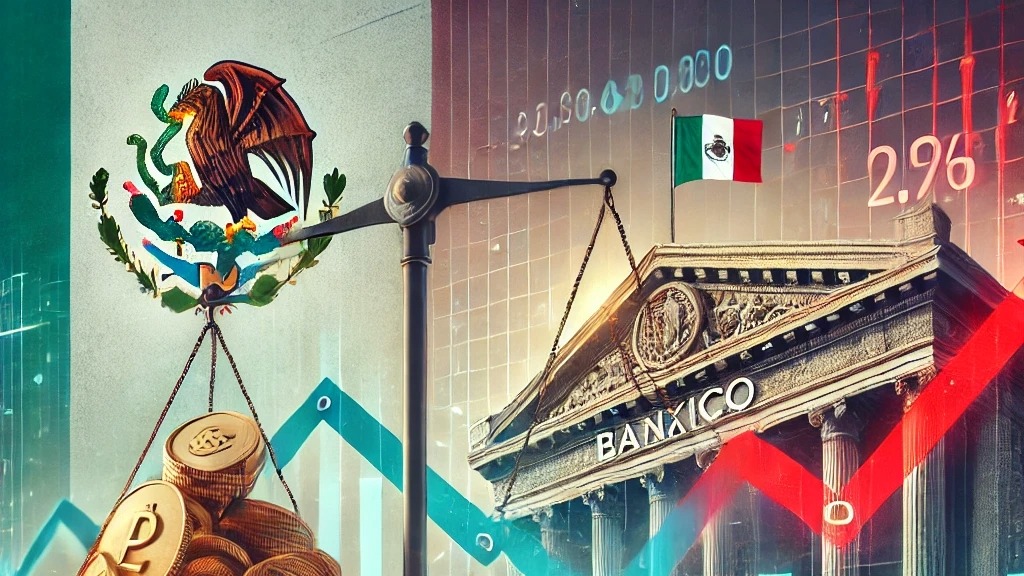Aumento de la Inflación en México: Desafíos y Estrategias para el Sector Empresarial

En julio, la inflación en México registró un notable incremento, alcanzando su punto más alto en más de un año. Este fenómeno no solo presenta desafíos económicos, sino que también pone a prueba la fortaleza y adaptabilidad del sector empresarial mexicano.
La tasa de inflación general se estimó en 5.57% para julio, reflejando un aumento constante por quinto mes consecutivo. Mientras tanto, la inflación subyacente, que excluye elementos volátiles como alimentos y energía, se redujo al 4.02%, su nivel más bajo desde febrero de 2021. Esta dicotomía entre la inflación general y subyacente sugiere una desigualdad en la presión sobre diferentes sectores de la economía.
El aumento en la inflación afecta variadamente a los sectores. Por ejemplo, las industrias de manufactura y exportación pueden beneficiarse de la depreciación del peso, mientras que el sector de servicios, especialmente el turismo y la restauración, podría sufrir debido al menor poder adquisitivo de los consumidores. Este entorno económico requiere una evaluación minuciosa y una planificación estratégica por parte de las empresas para mitigar los efectos adversos y aprovechar las oportunidades emergentes.
Esta situación requiere una revisión de nuestras estrategias de precios y costos,” menciona Laura Hernández, CEO de una empresa manufacturera líder.
“Estamos aprovechando la tecnología para optimizar operaciones y reducir desperdicios, lo cual es vital en estos tiempos.”
Empresas en sectores sensibles a la inflación están adoptando tecnologías avanzadas para mejorar la eficiencia y controlar costos. El uso de inteligencia artificial para la gestión de inventarios y la automatización de la producción son ejemplos de cómo las empresas están respondiendo proactivamente a los desafíos. Además, la digitalización de procesos y la adopción de soluciones tecnológicas innovadoras están ayudando a las empresas a mantener la competitividad en un entorno inflacionario.
El Banco Central de México se encuentra en una encrucijada, balanceando entre controlar la inflación y fomentar el crecimiento económico. La decisión sobre la política de tasas de interés, que será anunciada próximamente, es anticipada con gran interés por el sector empresarial. Esta decisión tendrá implicaciones significativas para las estrategias de financiamiento y la inversión empresarial, influenciando directamente la capacidad de las empresas para expandirse y adaptarse.
A pesar de los desafíos, algunos ven esta situación como una oportunidad para reformar y mejorar. “La inflación también nos empuja a ser más creativos y buscar nuevos mercados,” agrega Hernández. “Es un impulso para innovar más rápidamente y diversificar nuestras ofertas.”
Además, la cooperación internacional y la formación de alianzas estratégicas entre empresas de México, Estados Unidos y Canadá pueden desempeñar un papel crucial en la superación de estos desafíos. Las empresas están explorando nuevas formas de colaboración y sinergias para fortalecer sus posiciones en el mercado y acceder a nuevas oportunidades de crecimiento.
El sector empresarial de México se enfrenta a una prueba de su resiliencia y capacidad de adaptación. Con estrategias adecuadas, las empresas no solo pueden sobrevivir sino también prosperar. La economía mexicana está en un momento decisivo, y su futuro dependerá en gran medida de cómo los líderes empresariales y los formuladores de políticas respondan a estos desafíos inflacionarios.
Colaboración: Editorial Auge.





